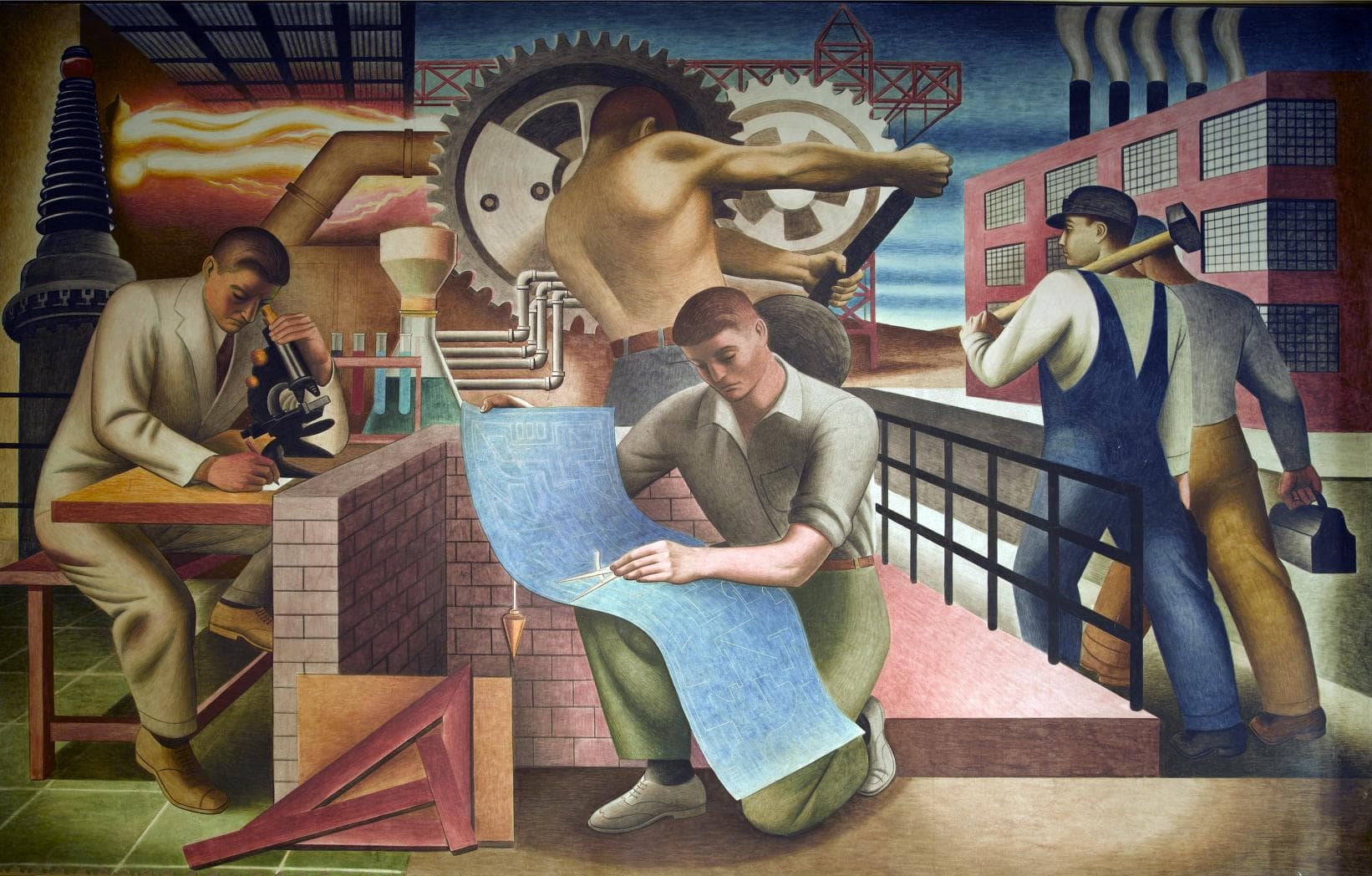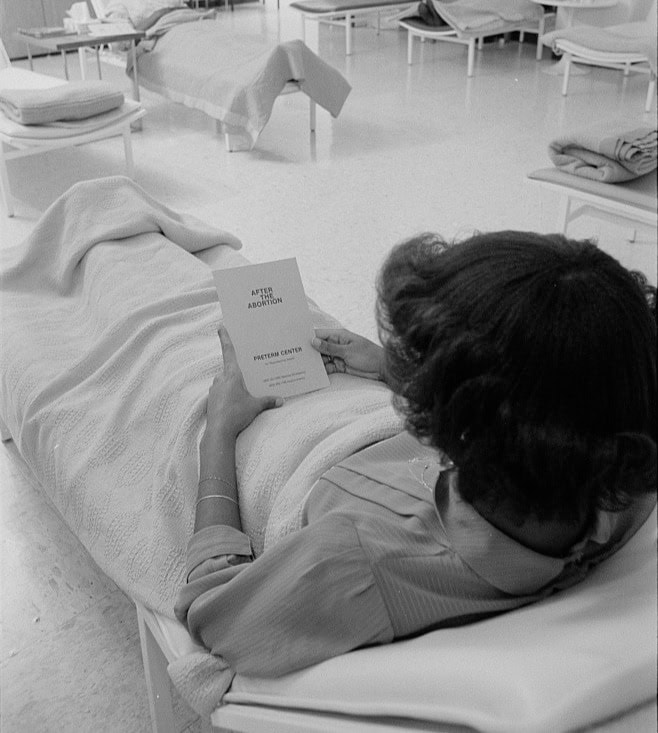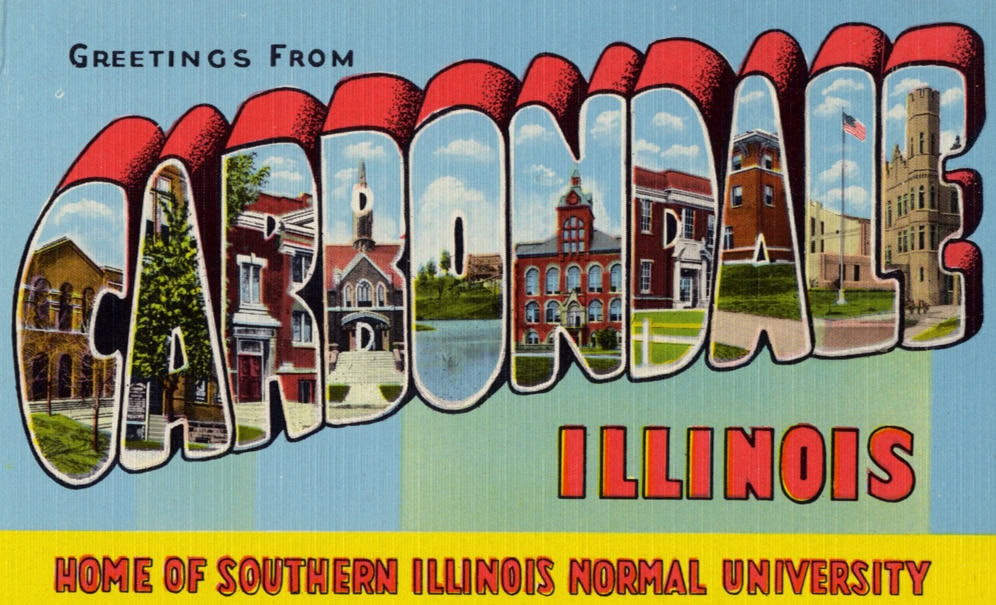Editor’s Note: We are publishing this lecture (delivered at the Lincoln and Soldiers Institute in April 1996) as part of our series of occasional essays on and by eminent practitioners in the field who have been pioneers, role models, and exemplars. An eminent historian himself, David Donald pays homage in his lecture to those who inspired him.
I accept with great gratitude this Lincoln Prize, the highest award that any book in 19th-century American history can receive. For this great honor I am deeply indebted to the Lincoln Prize jury, to the board of trustees of the Lincoln Prize, and especially to Dr. Gabor Boritt, the director of the Lincoln and Soldiers Institute of Gettysburg College. I offer heartfelt thanks to you all.
In accepting this award, I want to make clear how much my Lincoln owes to so many others who have encouraged, assisted, and reviewed my work.
Beyond these immediate debts, though, a historian on an occasion like this needs to recognize that his work has been possible only because of what his predecessors have done. I could not have written my book if Roy Basler, Marion Bonzi Pratt, and others had not worked so hard to give us the authentic texts of all of Abraham Lincoln’s writings. Similarly, it would have been hard to follow the intricate developments of the war years without the three-volume chronology of Lincoln Day by Day, compiled under the careful editorship of Earl Miers. On a more general level, my Lincoln draws on a tradition of scholarship that goes back to John Nicolay and John Hay and to William Herndon; it reflects the important work done by Albert Beveridge and Ida Tarbell, by William Barton and Louis Warren, by Paul Angle and Benjamin Thomas. From all I have drawn facts, ideas, and inspiration. I can echo Sir Isaac Newton’s letter to Robert Hooke: “If I have seen further [than you] it is by standing on the shoulders of Giants.”
In particular I want to acknowledge my debt to three of the giants in the field of Lincoln scholarship, the three great men whom it has been my privilege to know. And I have to begin by confessing that initially I was not much impressed by any one of them.
When I went to the University of Illinois for graduate study in 1940, I was convinced that history was—or could be made—a science if it drew on the insights of sociology and statistics. I was, I believe, the first historian at the University of Illinois to take a course in statistics. With these ideas, I found it easy not to be impressed by Professor Randall, who was recognized as a great Lincoln authority but whose lectures and seminars were anything but inspiring. It was not until I became Professor Randall’s research assistant that I learned, how very wrong my initial impressions had been. Hunting down clues in the University of Illinois library that might be of use for his Lincoln the President, compiling bibliographies, and meticulously checking and rechecking every fact and quotation in that biography taught me a respect for accuracy and precision that I hope never to lose. As I sat in front of his old-fashioned manual typewriter, while he dictated sections of his book, I learned how carefully a great historian phrases, revises, and rephrases his words to secure his precise meaning. Then, too, I was fortunate enough to assist Professor Randall in seeing the first volumes of Lincoln the President through the press, and he and Mrs. Randall taught me the difficult arts of proofreading and indexing. In short, my years with Professor Randall were an apprenticeship, and I have come to realize that this is probably the best way to train a young historian. In that training he quite unconsciously taught me most of what I know about how a historian works and thinks, and his influence I gratefully acknowledge as one of the strongest and most enduring in my life.
It was through Professor Randall that I met my second great Lincoln scholar, Carl Sandburg. The two were an unlikely pair: Randall, the careful, judicious scholar, and Sandburg, the master of poetic prose. But perhaps because of their differences they were great friends who admired each other’s writing. When the long-sealed Lincoln Papers in the Library of Congress were opened in 1947, both were present. They worked side by side all summer, and they welcomed me to join them.
Once again, with a young man’s characteristic lack of perception, I was not at all sure that I admired Carl Sandburg. Of course I knew his reputation as a poet, but those were the days of the New Criticism and I looked to T. S. Eliot as my literary guide. I knew, too, that Carl Sandburg had published his million-word biography of Lincoln—most recently (in 1940) Abraham Lincoln: The War Years, in four enormous volumes—but since it drew not at all on sociology or statistics, it struck me as highly unscientific, and its poetic rhetoric seemed hollow and false to a young man trying desperately to be sophisticated. But during my close association with Mr. Sandburg in Washington, I came to recognize how narrow were my youthful criteria for judging a historian. His openness, his lack of pretension, his kindliness won me over, and he took a special interest in my biography of Lincoln’s law partner, which I was just completing. Generously he offered to write an introduction for that book, praising its treatment of what he called “the paradoxical, hifalutin, abrupt, whimsical, com-on-the-cob, owlish, temperamental, convivial, forlorn, transcendental, lonely, reverent, eloquent Bill Herndon.” I can remember the exasperation with which one New York reviewer greeted my book when it was published. He complained that he dared not criticize a Lincoln book that was vouched for both by the preeminent scholar, J. G. Randall, and by the great popular biographer and poet, Carl Sandburg.
Over the next few years I saw a good deal of Carl Sandburg. I was teaching at Columbia, and he often came to New York to discuss his novel, Remembrance Rock, and other matters with his publishers. When his day’s work was finished, he used to call me to come down to the Village for a Chinese or German dinner; he knew the best—and the cheapest—restaurants in New York. There for hours we talked—well, he did most of the talking, and I listened—about life, literature, and Lincoln. The more I saw of this very great man the more I realized the depth of his feeling about the uniqueness of Abraham Lincoln and the vast importance of the American experiment. From him I learned at writing history is something more than collecting and analyzing facts; writing good history requires a profound emotional commitment.
The third great Lincoln scholar who influenced me was Allan Nevins, whom I first met when I began teaching at Columbia University. One Saturday afternoon he came into the office in Fayerweather Hall, where four of us beginning instructors were trying to work at desks that stood side by side in a small room. “Why,” he said, with a characteristic bob of his head, “this is disgraceful! No one can work in such crowded conditions. You,” he pointed to me, “will come and share my office at the end of the hall.” And, within five minutes, I was moved.
Up to that time, I knew of Allan Nevins as a larger-than-life, almost mythical figure, the author of dozens of books that ranged over the whole course of American history, but—as was true of the other great Lincoln scholars I had met—my initial impressions were not entirely favorable. In the Middle West, where I had been educated, Mr. Nevins’s reputation was not high; small, slow historians condemned him as a journalist—after all, he never had a Ph.D. degree!—and a popularizer; they rejoiced when they discovered errors in his books; and they claimed that a stable of assistants really wrote his histories.
Sharing Mr. Nevins’s office, I learned how erroneous these stereotypes were. To be sure, he did have several research assistants; but listening to them report to him on their labors made me realize that these were impecunious graduate students for whom the professor had devised small research tasks so that they could make a little money. Mr. Nevins did not depend on these assistants, most of whom were of very modest ability; on the contrary, they depended on him for what were essentially make-work assignments. At the same time I learned how indefatigable Mr. Nevins himself was and how enormous were his powers of concentration. He even read proofs on the jolting New York City subway.
To Allan Nevins, history was a branch of literature, and he combined an unbelievable mastery of fact and detail with a comprehensive knowledge of English and American literature. I can remember my astonishment at hearing him tum from a discussion of the novels of George Meredith (which I had never been able to read) to an analysis of D. H. Lawrence’s almost forgotten Kangaroo. Working on the first volumes . of his sweeping Ordeal of the Union, which was ultimately to reach eight massive volumes, he regarded history as a high calling, to which he dedicated every moment of his time. It was his lofty goal to become another George Bancroft, who would recreate his country’s saga with such breadth and detail as to rekindle the fires of patriotism and loyalty. From Allan Nevins I gained my conviction that history is not just a profession but a passionate commitment, a lofty calling, a patriotic necessity.
These were the three very different masters from whom I learned my craft, and I take great pleasure in expressing my indebtedness to all three. As George Santayana once remarked, “Piety is reverence for the sources of one’s being,” and I truly revere these great Lincoln scholars. It is reasonable to ask how, with such towering mentors, I carne to write my own life of Abraham Lincoln. Indeed, uncertain whether my small seedling would have a chance to grow under the shadow of these giant redwoods of the historical forest, I rejected many suggestions that I attempt a Lincoln biography. To those who urged me to do so, I used to say, rather flippantly, that I had spent half my life not writing a Lincoln biography, choosing to confine myself to collateral and peripheral subjects, like Herndon, Charles Sumner, and Salmon P. Chase.
But after the deaths of Randall, Sandburg, and Nevins, it became evident that their histories of the Civil War years, for all their greatness, were increasingly dated. There were other good biographies, but they generally neglected such topics as race relations, the role of African Americans in the Civil War, and Lincoln’s policy toward the Indians. The full exploitation of the Lincoln Papers in the Library of Congress and the more recent availability of the thousands of documents collected by the Lincoln Legal Papers in Springfield offered new sources and new insights into Lincoln’s career. But I still hung back. When Charles Sumner and the Coming of the Civil War won a Pulitzer Prize in biography, I was, of course, delighted, but it was not until Look Homeward: A Life of Thomas Wolfe received a second Pulitzer award that I felt that I was being sent a message: competent people thought I was good at the art of biography. ln a sense they seemed to be urging me to get on with writing a life of Lincoln before it was too late. Thus, in a very minor way I shared Abraham Lincoln’s feeling that I was not in control of events, but that events were controlling me.
Once I did get under way, I recognized the problem that Harold Blum has called “the Anxiety of Influence”-how one author responds to, imitates, or tries to escape the influence of his great predecessors. It was clear to me from the outset that I could not compete with, much less equal, Mr. Randall’s judicious, ruminative appraisal of Lincoln and his administration. I never even thought of imitating the poetic elevation of Mr. Sandburg’s evocation of an era. And I saw no reason to try to duplicate Mr. Nevins’s broad canvass of a nation at war. Deliberately I chose a different strategy, one that offered understanding, not judgments, one that focused on the specific action and the mundane fact, one that concentrated on Abraham Lincoln himself, rather than his generation or his society.
At the same time I chose to write in a different voice, one that would be deliberately low-key, so as to allow Abraham Lincoln’s own words to be heard. It is tempting for a biographer to call attention to himself, rather than to his hero. Ever since Lytton Strachey, who made himself much more interesting than any of his subjects, writers have fallen into this trap. But I resolved that my book would allow Lincoln to speak for himself.
I am not sure how well I have succeeded. That is for others to say. I recall that the great historian Richard Hofstadter once told me that he was not sure that any of the people he had written about would recognize themselves in his pages. I can only hope that if Abraham Lincoln were able to read my biography he would say: “Well, it wasn’t exactly like that, but on the whole he got my picture.” But Lincoln might have called it his “shadder.”
It would be responsible to ask what I have learned during this long process of exploration and re-creation. I wish that I could say that these years of studying Abraham Lincoln have given me something of the openness, the generosity of spirit, and the tolerance of our greatest president, but I am sorry to report that writing a biography is not therapy. Living with Lincoln may have made me a wiser, but not necessarily a better, man.
The only lesson I am sure that I have learned from writing about this remarkable, complex, and elusive man is a recognition of my own limitations. Such modesty does not come to me easily or naturally. No one here will remember it, but in my very first letter to the New York Times asking for sources and information -about Lincoln’s law partner, I announced boldly that I was writing “the definitive biography” of William H. Herndon. Something of that same arrogance was evident in my life of Charles Sumner, where I grandly informed readers that in many respects I knew more about the Massachusetts senator than he ever knew about himself. And, as I look back on Look Homeward, my life of Thomas Wolfe, I am troubled by a patronizing tone, suggesting a fatherly condescension toward a gifted but wayward son.
I could bring none of these attitudes toward Lincoln. The great Civil War president was not a figure who could be patronized. The best I could do was to try, with my limited ability, to understand him on his own terms. And that brings to mind one of Lincoln’s own “leetle stories.” You will remember that toward the end of the war the president was visiting Grant’s army and insisted on visiting Richmond right after it fell to the Union forces. He and his party started up the James River on the U.S.S. Malvern, Admiral Farragut’s flagship, but it could not pass a line of obstructions the Southerners had placed in the river, and he had to transfer to a shallow-draft barge, pulled by the tugboat Glance. When the strong river current forced the Malvern against a bridge, the tugboat was detached to rescue it, and Lincoln was left in the barge, which 12 sailors slowly rowed upstream. The president was amused. “Admiral,” he said to David D. Porter, who was in the party “this brings to my mind a fellow who once came to me to ask for an appointment as minister abroad. Finding he could not get that, he came down to some more modest position. Finally he asked to be made a tide-waiter [a customs collector]. When he saw he could not get that, he asked me for an old pair of trousers.” “It is well to .be humble” the president concluded—and that, perhaps, is the best lesson for any Lincoln biographer.
David Herbert Donald is currently the Charles Warren Professor of American History and professor of American civilization emeritus at Harvard University. He has won the Pulitzer Prize for biography twice, for Charles Sumner and the Coming of the Civil War (Knopf, 1960) and for Look Homeward: A Life of Thomas Wolfe (Little, Brown, 1987). His most recent book, Lincoln (Simon & Schuster, 1995) was warded the Lincoln Prize.


